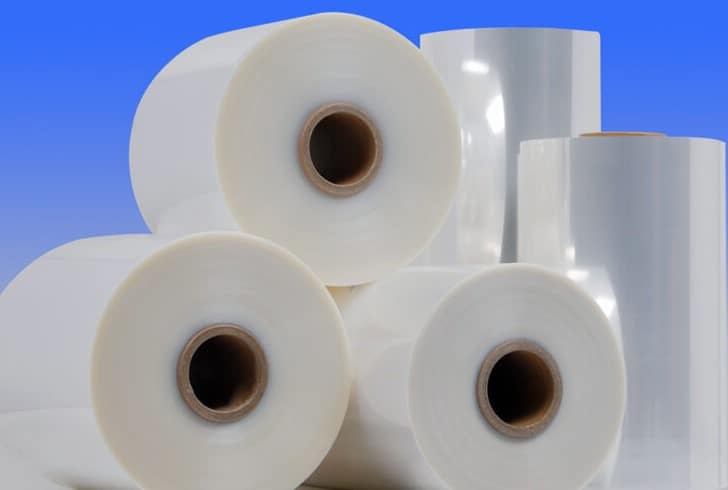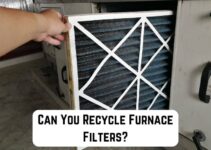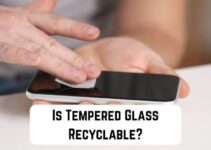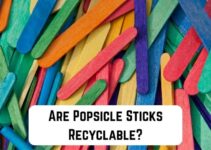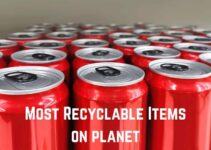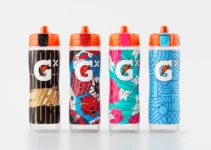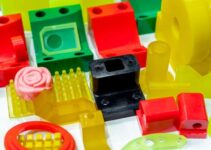BOPP is no doubt material you find everywhere. Scientists made this happen, and it is a step up from PP packaging or labeling. BOPP is the best choice for reasons such as a lighter weight, more appealing branding or packaging, and its water-resistant nature.
If you have bought bags of fertilizers, grass seed, sand, cat or dog food, rice, or concrete mix in the last couple of years, that product was likely wrapped in BOPP. BOPP is also a useful material for insulating gadgets, preserving or prolonging the lifespan of food, and several other uses this blog post will address.
It is no doubt prevalent in the manufacturing industry, but is Bopp recyclable? What do you do to BOPP materials that you can identify? Better still, is it compostable or biodegradable? Keep reading, and you will find the answers you need!
What is Bopp, and What is Bopp Made From?
BOPP is an acronym for biaxially-oriented polypropylene. You can also describe it as a semi-crystalline thermoplastic polymer. In other words, BOPP is a type of plastic.
The talk of plastic raises the back hairs of those in the environmentally sustainable movement, but we promise that this one is different. BOPP is a thermoplastic, but one engineered especially for sustainability and limitless use cases.
BOPP is made from plastic, but you may disagree at first sight because of how it looks. However, it is stretched thin because the manufacturing process entails pulling the material in two opposite directions.
This gives it a lighter weight and firmer consistency. And because BOPP is made from quality materials, it offers durability and an extensive life cycle. Speaking of which, BOPP encourages cycle consumption, which is one of the reasons it was created.
You will find BOPP almost everywhere, especially on labels and stickers. You will also find it useful for clothing, food, prints, and cosmetics.
Some of the features of BOPP include:
- Heat resistant.
- Water-resistant.
- Airtight; it prevents the entry of microbes and oxygen, therefore keeping products enclosed within fresh.
- Excellent printing surface.
- Transparent.
There are different types of BOPP materials: metalized, transparent, mother-of-pearl, shrink, and perforated. They each serve their purposes – for instance, mother-of-pearl was designed to withstand freezer conditions, making it great for food and other items in the refrigerator.
Is Bopp Film Recyclable?
Yes, BOPP plastic is recyclable. You can recycle it multiple times, and the item will not lose value. Another upside to recycling BOPP is that you can do it countless times without sacrificing the profits that stand to be gained.
Recycling is one of the best ways to dispose of our waste. However, not every item can go into the recycling bin yet. Some can be recycled, but they consume significant energy because the recyclers must conduct the process at extreme temperatures.
This still strains the environment, even though it is somewhat temporary.
In contrast, BOPP film is recyclable, and recyclers don’t need to burn as many fossil fuels or use an intense amount of energy, which is an upside. You can recycle BOPP at low temperatures, which is why it is an environmentally positive individual favorite.
In the United States, BOPP can be recycled in HDPE recycling centers. You can now put it in the blue bin instead of throwing it in the trash can. The recycle bin is the best place for waste like this because BOPP is plastic; it does not biodegrade.
BOPP film can be recycled but finding a recycling center may not be a walk in the park. This is because the recycling of BOPP is a relatively new phenomenon, which means not every recycling center has leveled up to accept and process this material.
It is best to inquire before putting your BOPP waste in the blue bin.
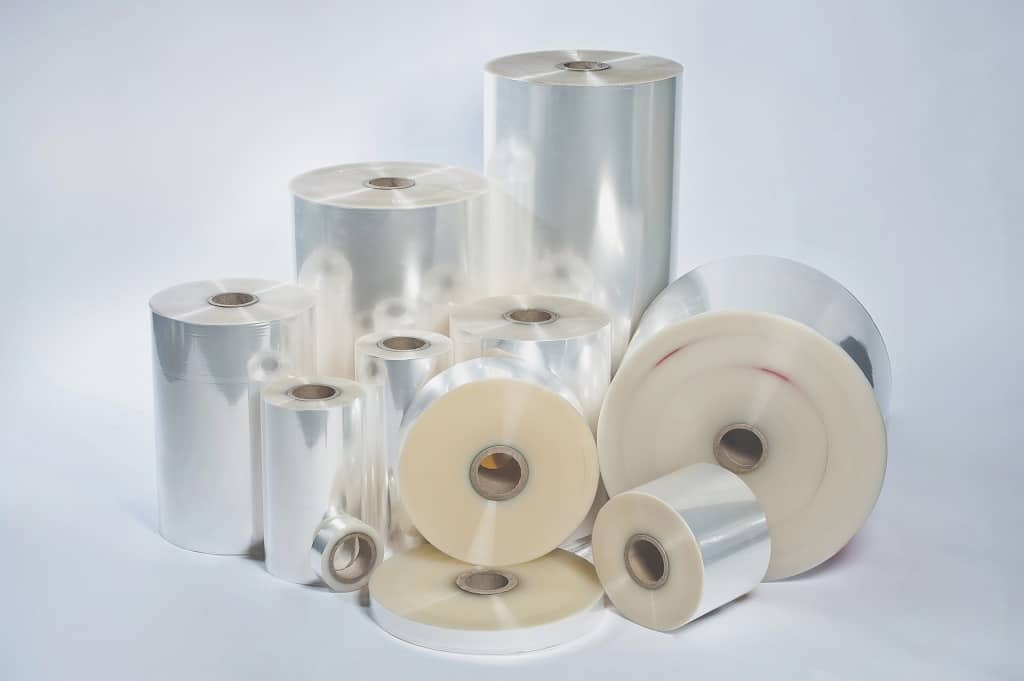
Is Bopp Biodegradable?
No, BOPP is not biodegradable because it is a type of plastic. BOPP is made from polypropylene, a synthetic polymer that is also resistant to UV radiation. Being a synthetic material, plastic offers no nutritional benefits to microbes involved in biodegradation.
There are arguments that plastic is a sustainable consumer option, or it can be when it is regulated. The reason is that you can recycle it repeatedly without losing value, which is a redeeming factor.
However, single-use plastic is the bane of the environmental consciousness movement. It is even worse when consumers fail to dispose of the waste properly, leaving it in landfills.
With BOPP, biodegradability is not an option because it is made from plastic polymer. However, the redeeming grace is its ability to undergo or withstand relentless recycling.
When you put it in the blue bin where it should be, you ensure that the material does not end up in the landfill or in a position where it would require biodegradation.
Biodegradation happens so that materials can be recycled back into nature, allowing waste items to replenish the ecosystem. In other words, we can describe it as nature’s way of recycling waste.
If you cannot recycle a material naturally, the least we can do is recycle it manually. That way, we reduce the impact of our existence on the environment. Recycle your BOPP waste, and it will not matter that the material is non-biodegradable because there will be no build-up or accumulation that negatively affects the environment.
Is Bopp Compostable?
No, BOPP is not compostable. It is not biodegradable, so it will not break down in a compost pile. BOPP is an inorganic matter that the microbes, the primary decomposition agents in a compost pile, cannot break down. If the aim is to protect the environment, it is best to avoid leaving a material like BOPP in the ecosystem. The safest bet is to recycle it.
Bi-axially oriented polypropylene is not biodegradable because it is made from plastic. Plastic is a synthetic material that does not break down. Plastic waste from hundreds of years ago washes ashore, and landfills contain waste that will remain there for several more decades to come.
The same applies to composting plastic. It will not break down but will degrade into microplastics. If you compost BOPP, you will meet the item there five or ten years from now.
This is because it does not create a welcoming environment for bacteria to feed on and colonize. Since BOPP is made from plastic, it provides no nutritional value, which means the elements and time will be left to degrade the item.
BOPP is not organic waste, so it does not qualify to be put into the compost bin.
Is Bopp Single-Use Plastic?
Yes, BOPP is single-use plastic. It is a transparent plastic film that is only often used once and then thrown in the recycle bin or trash can. BOPP is mostly used for the labels of products, and there is no reason we would reuse these labels, so they have to be recycled or thrown in the trash can; the definition of single-use plastic.
There are many reasons single-use plastic is a bane to the environment. The phenomenon of packaging food, drinks, packages, and pretty much everything we use every day started in the 1940s and has so far left a disastrous effect on the environment.
Plastic is the primary pollutant of the ocean. It also litters the environment and leaves some areas looking like landfills. And guess what? Plastic does not biodegrade like organic matter, so it will not break down or leave the environment anytime soon.
This is why advocates of the green movement are constantly rallying for the reduction of plastic consumption. Fish and other aquatic wildlife have been reported to choke on our plastic waste.
If they are not choking, an intestinal blockage may happen. It is also worth mentioning that when plastic breaks down, it becomes microplastics.
Unfortunately, microplastics can travel into the human body. Wildlife isn’t spared either, as these little plastic pieces are found in the oceans, smaller water bodies, the atmosphere, and the soil.
It is advisable to cut back on our single-use plastic consumption as much as possible. And if we have no current alternative that is more environmentally conscious, we should attempt to recycle BOPP and other single-use plastics.
Is Bopp the Same as Polypropylene?
No, BOPP and polypropylene are not the same. Polypropylene is also known as PP, a form of thermoplastic semi-crystalline polymer also used in the packaging industry.
The difference between BOPP and polypropylene is an essential manufacturing process. BOPP is mainly known for being pulled in two axial directions by a machine to stretch it out and provide the transparency it is renowned for.
The pull in opposite directions strengthens or reinforces the material and gives it a hard, paper-thin texture. In contrast, polypropylene is soft. It is also heat resistant and robust, but BOPP is stronger and preferable for lifting or transporting heavier items.
Polypropylene is used to manufacture diapers, Ziplock pouches, and thermal outfits.
But again, BOPP is made from polypropylene, so these materials are essentially the same. The difference is in how they are manufactured and used, which sets them apart.
Is BOPP the same as polypropylene? The answer is no and the difference is how they are fabricated.
The everyday use case of BOPP is for labels because of the ability to accommodate fine prints on the transparent surface. This also makes it a good surface for branding, which is why it is so common for packaging food.
BOPP is also water resistant and commonly used for wrapping bouquets.
Other differences include: BOPP can be sealed with or without a heat sealer. In contrast, you need a heat sealer to close a polypropylene bag. BOPP bags undergo multi-directional extrusion, while polypropylene items undergo a single-direction extrusion.
When you look at these two materials, too, there is a physical difference. Polypropylene is not as clear as BOPP; it is rather cloudier, and the reason is because of the biaxial orientation.
It stretches the material thin and consequently disperses the cloudiness.
How to Recycle Bopp Films?
You can recycle BOPP films by putting them in the blue bin. BOPP films are now accepted alongside other HDPE products, and local recycling centers in the United States are beginning to recycle this material more.
You can recycle BOPP with other plastic waste.
But if you are unsure whether you can recycle BOPP in your municipal, you should use a recycling locator to find the closest center.
Most importantly, you need to prepare the material for recycling. Separate the items that need separation and put them in their appropriate bins.
Conclusion
BOPP film is popular in the manufacturing sector for many reasons. It is water and heat-resistant and strong enough to withstand heavy weights, making it great for transportation.
We can recycle BOPP, which is excellent because this material does not biodegrade. But even better, BOPP can be recycled many times and will not lose its core components or intended form.
